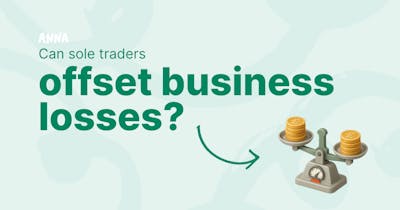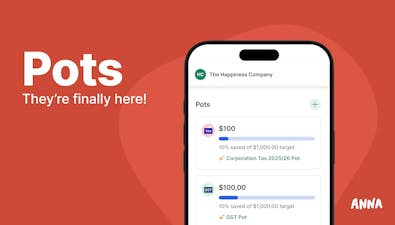
How To Start A Jewellery Business In Australia [2025]


Learn how to start a jewellery business in Australia, including essential setup steps, legal requirements, and tips to grow in the industry.
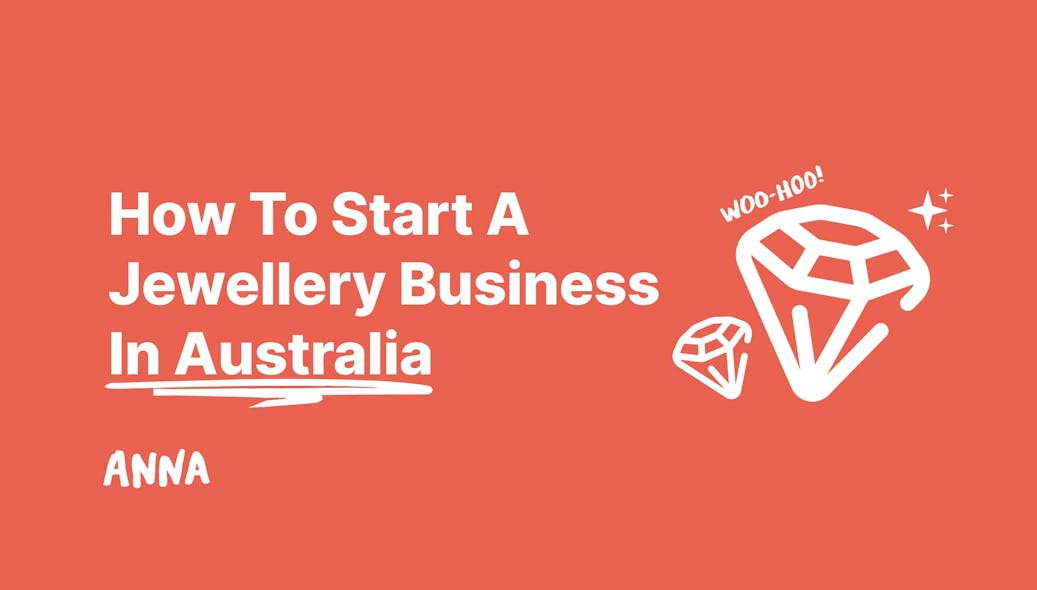
Starting a jewellery business has its advantages, but there are also many steps and things to think about.
In this article, we will first see how that market works, and we will go through the in-depth steps, after which you will be able to start your jewellery business in Australia in 2025!
Let's get started!
3 Revenue Statistics About Jewellery Business
1. The market is expected to develop at a CAGR of 2.80% between 2025 and 2034 due to changing consumer tastes for luxury items and rising demand for high-quality, sustainable jewellery pieces, reaching roughly $4.4 billion by 2034.
2. According to another research, the Australian jewellery market reached around $5.8 billion in 2025, showing a compound annual growth rate (CAGR) of 2.4% over the previous five years.
3. The internet share of the Australian jewellery retail market is 27.6%, and it is expected to expand by an average of 0.9% to 28.6% by 2029.
9 Steps To Start A Jewellery Business In Australia in 2025
Let’s go over 9 key steps on how to start a jewellery business!
1. Identify Your Niche
Before you start brainstorming design ideas or sourcing materials, determine your niche.
It will serve as the foundation for your entire jewellery business.
Begin by questioning yourself:
- What kind of jewellery do I love?
- Who would I like to wear my designs?
- Is there a gap in the market that I can fill?
Some popular niches in Australia are:
💎 Fine Jewellery - Consists of high-quality metals (such as gold and platinum) and valuable stones. Perfect for engagements, anniversaries, and luxury giving.
💎 Costume or Fashion Jewellery - Consists of affordable, stylish pieces produced from materials such as resin, beads, or stainless steel. Ideal for younger shoppers or individuals who enjoy changing their style on a frequent basis.
💎 Bespoke/custom - These pieces are made to order and tailored to the customer's specifications. This might result in a loyal following, particularly for weddings or other occasions.
💎 Eco-friendly or Ethical Jewellery - Created from recycled or sustainable materials and frequently created locally. An increasing trend among aware Australian customers.
💎 Cultural or Artisanally Inspired - Drawing on Indigenous designs, international elements, and artisanal processes. This niche has the potential to communicate a story while also being visually appealing.
2. Develop a Business Plan
A business plan is a written document that describes your business, what you want to sell, how you will function, and how you aim to expand.
It doesn't have to be extremely complicated, but it should cover all of the important aspects of your jewellery business.
What should you include in your jewellery business plan?
💎 Business goals - What do you hope to achieve in the next six months, a year, or five years? Be specific: Are you looking for a flagship store, an online-only model, or to stock in boutiques?
💎 Product range - What types of jewellery will you offer? Include information such as materials utilised, stylistic motifs, price range, and whether the products will be made-to-order, mass-produced, or unique.
💎 Target market - Identify your target market and ideal customers. Consider age, income level, stylistic preferences, values (e.g., environmentally conscious shoppers), and purchasing habits.
💎 Marketing strategy - How will consumers discover your brand? Consider social media, influencer relationships, markets/pop-ups, SEO for your online store, and email campaigns.
💎 Financial plan - Create a financial plan by estimating startup costs (materials, tools, packaging, website) and ongoing expenses, as well as forecasting revenue. This helps you determine when you'll break even or make a profit.
💎 Operational plan - Outline your operational plan for production, shipping, inventory, and customer service. Will you work from home, rent a studio, or outsource some of the process?
You don't have to have everything planned out, and your strategy can change.
However, having everything down on paper pushes you to think strategically from the very start. If you want to know more about business templates, check out our article, Free Business Plan Template For Businesses in Australia.
3. Choose a Business Structure
Before you can start your jewellery business in Australia, you must first select a legal structure. This affects everything from how you're taxed to how much personal liability you have.
In Australia, the most common business structures include:
1. Sole Trader
You operate the business as an individual with your own Tax File Number. You can still recruit employees, but you are solely accountable for everything.
Pros:
✅ Simple and inexpensive to set up.
✅ Complete control over the business
✅ Fewer reporting obligations.
Cons:
❌ You are personally liable for debts or legal troubles, and your personal assets (such as your home or savings) may be in danger.
❌ Harder to raise financing or scale.
⭐ Sole trader structure is ideal for side hustlers or solitary creatives looking to gain experience before expanding.
2. Partnership
A business owned and managed by two or more people who share earnings, responsibilities, and risks.
Pros:
✅ Easy to set up and split the workload.
✅ Combining skills and resources
✅ Shared financial contribution.
Cons:
❌ You're jointly liable; if your partner piles up debt, you're responsible, too.
❌ Disputes may arise if responsibilities and expectations are not clearly established.
⭐ Partnership structure is ideal for two or more individuals starting a business together (friends, family, or colleagues) with a recorded partnership agreement.
3. Company (e.g., Pty Limited)
A separate legal entity registered with ASIC.
You are not personally liable for business debts (unless you provide a personal guarantee).
Pros:
✅ Limited liability protects your personal assets.
✅ Increased credibility with suppliers and customers.
✅ Easier to raise capital or grow the business
Cons:
❌ Higher setup and continuing administrative costs.
❌ More complex tax and reporting requirements.
❌ Must comply with business rules and regulations.
⭐ Company structure is ideal for jewellery businesses looking to expand, attract investors, or require legal protection from day one.
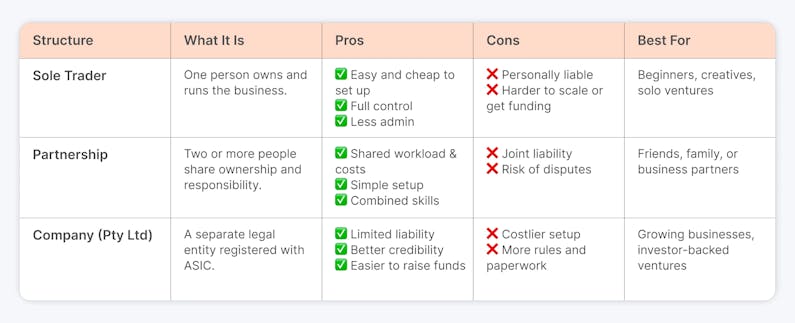
➕Bonus Tip
You may change structures as your business grows.
Many people start out as sole traders and later transition to companies as their business grows.
💡 ProTip
You can easily start a company with ANNA Money!
✅ Select a company name.
✅ Include additional features, such as a virtual office address, to keep your home address confidential.
✅ Share some details about your business.
✅ We will notify you once your application is completed.
How much does this cost? $288 as one-off fee
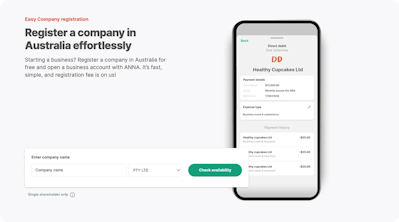
4. Register Your Business
Now that you've got a clear plan and structure, it's time to make it official.
Registering your jewellery business in Australia grants you the legal authority to operate and guarantees that you meet important tax and compliance requirements.
Here is what you need to do:
✅ Obtain an Australian Business Number (ABN)
What is it?
An ABN is an 11-digit number that identifies your business to the government and the general public. You will need it for:
- Register for GST
- Invoice clients
- Apply for business bank accounts
- Buy from wholesalers
How to Apply?
Apply for an ABN for free at: https://www.abr.gov.au/business-super-funds-charities/applying-abn.
It only takes about 10-15 minutes online.
You will need to enter basic information such as your business structure, business operations, and contact information.
✅ Register your business name as needed.
When will you need it?
If you do not trade under your entire legal name, you must register your business name.
Examples:
Trading under "Coastal Gem Designs" ✅ Register the name.
Trading as "Adam Anderson" ❌. No need to register.
How To Register A Business Name?
First, check ASIC's company name registration to make sure that your desired name is not already in use.
Visit the Australian Government website and follow the steps.
Registration costs:
$42 for one year.
$102 for three years.
✅ Register for GST
What is it?
GST is a 10% tax on most products and services in Australia.
Do You Have to Register?
Yes, provided your annual revenue is $75,000 or higher. If you intend your business to grow quickly or want to collaborate with other GST-registered businesses, it may be beneficial to register early.
How to Register For GST?
You can do it:
- At the same time you apply for an ABN.
- Through the ATO's Business Portal (if your ABN is active).
- Or through your accountant or BAS agent.
💡 ProTip
You can do all of the above with ANNA Money! You can get an ABN in 3 steps by providing information about your business, and you can also check the availability of the name you want to register ⬇️
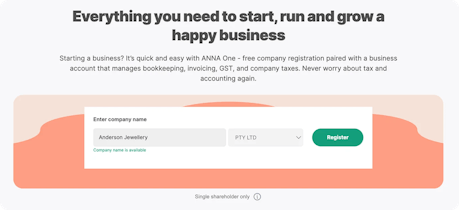
🟢 Green means that the name is available.
🟠 Amber means that it is already taken.
5. Protect Your Intellectual Property
Since you've invested time and talent into your jewellery creations and brand, it makes sense to protect them.
Intellectual property (IP) refers to your mind's creations, such as your business name, logo, and original designs.
Without legal protection, someone else could replicate and profit from your work, which happens more frequently than you might think in the jewellery industry.
What Can You Protect?
💎 Business name and logo - Trademarking prevents others from using similar names or trademarks in Australia.
💎 Jewellery designs - If your jewellery designs are unique and not mass-produced, you can register them with IP Australia.
💎 Packaging and slogans - Brand identity, including packaging and phrases, can be protected.
How to Protect Your IP in Australia?
1. Trademarking
A trademark legally protects your brand's elements, such as your name or logo.
You can apply via IP Australia. Prices start around $250 per class (a class is a product or service category), and it lasts ten years (with renewal possibilities).
Before applying, check the IP Australia database to ensure your brand name or logo is not currently in use.
2. Registering a Design
This safeguards your product's visual appearance—think shape, pattern, or configuration.
Apply through IP Australia - Design Registration. Keep in mind that your design must be new and unusual (not previously sold or presented publicly). This registration is useful for developing signature items or collections.
💡ProTip
With ANNA Money, you can even register your trademark!
Complete your trademark application in a few minutes and get reliable trademark protection.
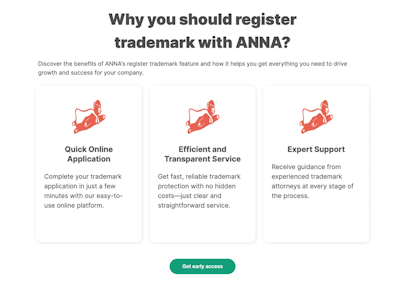
6. Set Up Your Workspace
It doesn't matter if you're dealing with gold, silver, resin, or beads, having the correct workplace is important not only for productivity but also for safety and regulatory compliance.
Depending on your budget and business size, you have the following options:
💎 Home studios - Many jewellery businesses begin in a spare room, garage, or well-ventilated corner. It's affordable and convenient, but there are certain things to consider first.
💎 Rented studio or shared space - For heavy machinery or extra space, consider collaborative maker studios or coworking spaces for creatives in your area.
💎 Retail or workshop combo - Jewellers may have a retail storefront and a workshop in the rear. It requires a greater commitment, but it is excellent for brand visibility and walk-in clients.
Don't skip these:
If you run a jewellery business from home, make sure you:
✅ Check local council zoning laws - Some councils have rules concerning running a business from home, especially if clients will be coming or using tools or chemicals.
✅ Meet health and safety requirements - Comply with health and safety standards, including adequate ventilation (particularly if working with resins), fire safety, safe electrical setup, and ergonomic workplaces.
✅ Have appropriate storage - Store sharp tools, small components, and chemicals properly, especially if there are dogs or children present.
✅ Get insurance sorted - Get business insurance to protect your tools and materials in case of accidents or damage.
Most tiny jewellery producers need the following to get started:
- Workbench or strong table
- Good lighting (natural plus task lighting)
- Proper ventilation
- Storage drawers for tools and components
- Ultrasonic cleaner or polishing tools
- Safety equipment: gloves, goggles, apron, and fire extinguisher
7. Source Materials and Suppliers
Purchasing from Australian suppliers can result in faster delivery, better communication, and quality control.
Consider international vendors for specialty items or better bulk order costs, such as India, Thailand, and China.
Just be aware of customs regulations, delivery times, and ethical standards.
What to look for in a supplier?
✅ Reliability - They should consistently produce on schedule. Delays can damage your sales and reputation.
✅ Quality Assurance - Request samples or certifications to ensure the consistency and authenticity of products.
✅ Transparent Sourcing - If you sell your business as ethical or sustainable, ensure your supplier's practices align with that.
✅ Clear Communication - Suppliers should answer quickly and explicitly, especially when issues arise.
✅ Fair Pricing - More expensive does not always mean better. Balance price and quality, especially for expensive or handmade items.
8. Create Legal Agreements
Even if you're starting small, if you have clear legal agreements in place from the start, it will save you worry and perhaps a lot of money, later.
Setting expectations and protecting your business are important when working with vendors or employing your first team member.
Supplier Agreements:
If you're sourcing products from frequent or large-scale suppliers, especially those located overseas, don't rely on handshake deals or imprecise communications.
A proper supply contract helps ensure the following:
✅ You receive what you requested (on schedule and in the condition you expected).
✅ The prices and payment terms are transparent.
✅ There is a fair procedure in place if things go wrong.
What to include in your agreement?
✅ Product specifications (quality standards, quantity, and packaging)
✅ Delivery terms (time, shipment method, and who covers what)
✅ Payment Terms (When and How You Will Pay)
✅ Warranties and returns
✅ Dispute resolution
Employment Contracts:
In Australia, you must present a written employment agreement whenever you hire employees, even if they are working part-time.
This contract should explicitly state:
✅ Position title and responsibilities
✅ Pay and conditions (including penalty or award rates, where appropriate)
✅ Working Hours and Location
✅ Leave entitlements (annual, sick, etc.)
✅ Confidentiality and non-compete provisions (particularly when sharing design secrets or customer lists)
9. Ensure Legal Compliance for Online Sales
If you sell jewellery online, through your own website, Etsy, or a marketplace, you have legal obligations to fulfil.
It's not enough to merely have a beautiful website and accept payments, you must protect your business and customers by being direct, transparent, and in compliance with Australian regulations.
Which must-have legal pages are on your website?
✅ Terms & Conditions - It outlines website usage, purchase procedures, delivery timelines, responsibility, and other policies. It protects you in case of a dispute and explains what customers might expect.
✅ Privacy Policy - If you gather personal information, such as names, emails, or payment information, you must have a privacy policy that specifies how it will be handled.
- What data do you collect?
- Why do you gather it?
- How is it stored?
- Whether it is shared with third parties (such as Stripe and Australia Post)
- How people can access or request the erasure of their data
Keep in mind that all Australian businesses that gather personal data, regardless of size, are required to comply with the Privacy Act of 1988.
✅ Refunds and Returns Policy - Australian customers have the legal right to receive refunds or replacements for faulty or incorrectly described items. Your policy should explicitly explain:
- How do customers request a return?
- Timelines for returns
- Whether you provide refunds, swaps, or store credit
- Who pays for return shipping
💡ProTip
ANNA allows you to register an ecommerce business for free and build a business account that is perfectly linked with Shopify, WooCommerce, Etsy, eBay, and Amazon!
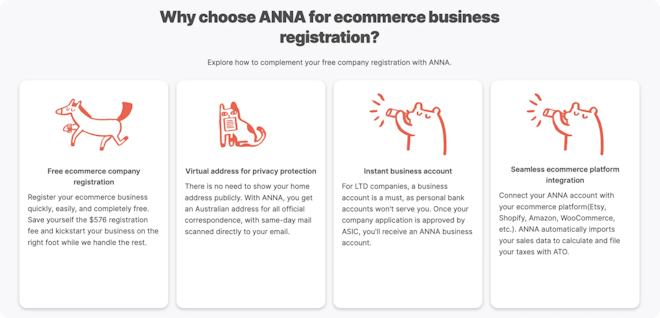
Conclusion
Maybe this seems like a lot of steps, but with tools like ANNA Money, it all becomes much easier.
You have to make the decision to choose your niche. We can help you with everything else.
Let's see how!
How ANNA Money Can Help You Start and Grow a Jewellery Business In Australia?
As you can see, with ANNA Money, you can start your business very easily, but what else can you get from this tool?
💎 Business Documents - Keep all receipts, invoices, and company documents in one location. We'll match transactions, extract important details, and make everything easy to find and share.
💎 Business Account - Business accounts include credit cards, virtual cards, Apple Pay, Google Pay, and employee expense cards. Easily check your balance and handle all of your payments.
💎 Registered Office Service - Keep your personal address off the public record with same-day automatic mail scanning and handling (compliant with ASIC, ATO, and other government authorities).
💎 Receipt matching - Automated receipt matching and spending categorisation to achieve the proper tax reduction.
💎 Personalised Tax Calendar - Never miss another tax date, and ensure timely compliance with all of your tax requirements.
💎 Support from Tax Experts - Our pleasant support team will answer any questions you may have.
💎 Bookkeeping Score - Stay on top of your bookkeeping and discover simple ideas for keeping your records neat.
💎 Invoices That Get Paid Faster - Get professional-looking invoices in seconds. We can even chase any unpaid invoices automatically on your behalf!
Sign up and start a jewellery business today!

